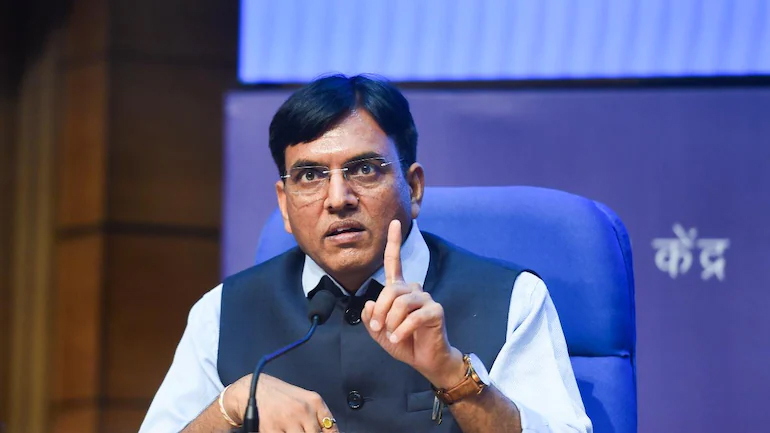NEW DELHI, July 8: Union minister Mansukh Mandaviya today said the excessive use of chemical fertilisers affects soil fertility and also has side effects on human and animal health, and stressed on the need to promote alternative fertilisers such as nano liquid urea-DAP.
The chemical and fertiliser minister was addressing a “Stakeholder workshop on strategy for promotion of alternative nutrition to reduce dependence on chemical fertilizers for Soil health and sustainability’ here.
The workshop was attended by vice chancellors of agricultural universities, state agriculture officers, manufacturers and distributors, farmer groups and NGOs, besides senior officials from the ministry of agriculture, ministry of chemicals and fertilizers, and Niti Aayog.
“The side effects of over consumption of chemical fertilisers are visible now. Soil health has been impacted,” Mandaviya said, adding that the growth in production and productivity has stagnated.
Citing a medical study in few districts where usage of chemical fertilsers are high, the minister said it was found that there are negative impacts on health of human as well as animals.
Mandaviya highlighted that the the government has recently approved a new scheme PM-PRANAM (PM Programme for Restoration, Awareness, Generation, Nourishment and Amelioration of Mother Earth) to incentivise states to promote alternative fertilisers and reduce the use of chemical fertilisers.
It has also decided to introduce sulphur-coated urea (Urea Gold) in the country for the first time to address sulphur deficiency in the soil.
That apart, the Cabinet Committee on Economic Affairs (CCEA) approved an outlay of Rs 1,451 crore subsidy to promote organic manure.
Mandaviya emphasised that all stakeholders and the government should work together to offset the negative impact of chemical fertilizers on agriculture.
He stressed on the need to create awareness among farmers about the negative impact of chemical fertilisers.
The minister spoke about the need to promote alternative fertilisers like nano liquid urea and nano liquid Di-ammonium phosphate (DAP), organic farming and natural farming.
Mandaviya said there are no negative impact of nano-fertilisers and farmers will not adopt if it does not help in boosting production.
Cooperative major IFFCO has introduced nano-Urea and nano-DAP in the market.
He complemented the farm scientists for their contribution in the growth of agriculture sector and asked them to take new research and innovations to farmers in such as way that they can be easily implemented.
Ramesh Chand, member, NITI Aayog, said, “Chemical fertilizers are easy to use, which is why people tend to overlook their negative impact. It is important that we use this workshop to discuss ways to strengthen sustainable practices in farming in India. It is an interactive platform, and the active participation of all stakeholders is necessary to make it fruitful.”
Chand emphasised on improving the efficiency of chemical fertilisers, promote use of alternative fertilisers, balanced use of organic and inorganic fertilisers and also generate wealth from waste by better management of crop residues.
The NITI Aayog member said the use of nano fertilisers should be promoted and if there are any limitations that can be addressed.
Rajat Kumar Mishra, Secretary, Department of Fertilizers, spoke of the recent decisions taken by the government to boost agricultural productivity, as well as rejuvenate soil fertility.
Agriculture Secretary Manoj Ahuja termed PM-PRANAM as a historic scheme. He spoke about the need for sustainable agricultural practices that can offset the harm caused by chemical fertilizers.
“We need to work with agricultural universities to take the message and benefits of these schemes to the farmers at the ground level,” he added. (PTI)
Trending Now
E-Paper


